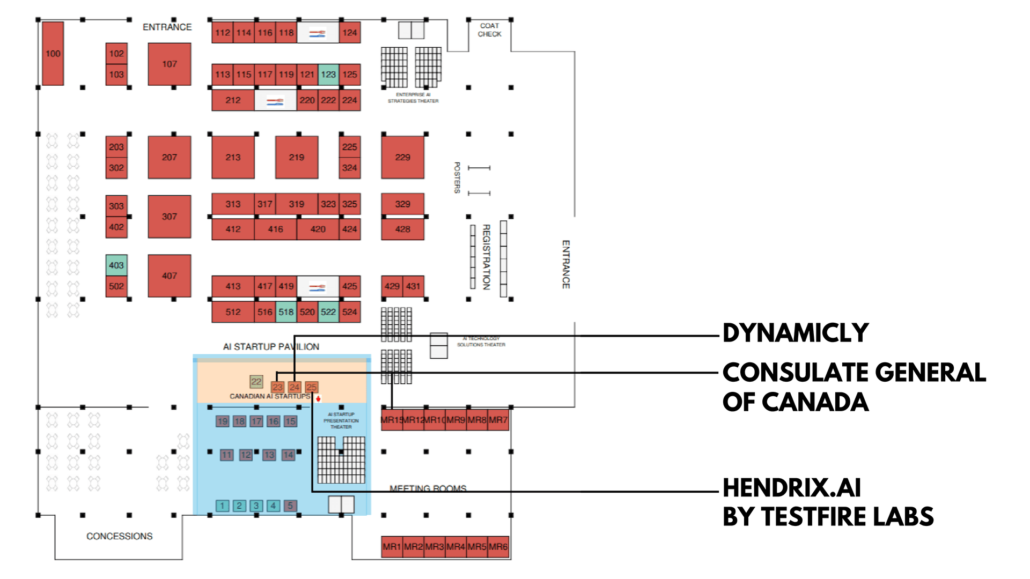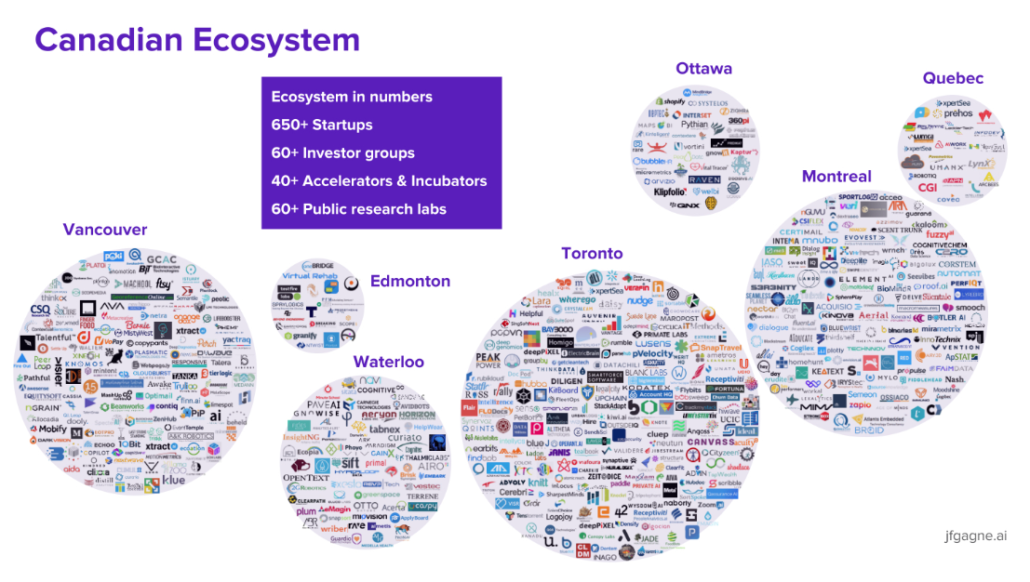Meet Canada’s Delegates at AI World Conference & Expo in Boston
5 min read
5 min read
December is gearing up to be a busy month for anyone who has an interest in artificial intelligence (AI). Boston-based AI World Conference & Expo and Montreal-based Conference on Neural Information Processing Systems (NeurIPS) are taking place at the very same time.
While we will be attending both, we would like to highlight our involvement with AI World Conference in Boston, a 3-day event that brings AI researchers, private industry, and government together to demystify AI and promote its integration within large enterprise.
Canada has undoubtedly cemented itself as a global leader in AI, so it shouldn’t come as a surprise that a group of Canadian delegates will be looking to build bridges and connect with other attendees.
We’ve rounded up the Canadian delegates who are participating in AI World in a big way – speakers and exhibitors alike.
Other than our team of advisors, here is a breakdown of executives, investors, and professors who will be participating in keynotes, roundtables, and panels over the course of the 3-day event.
Tuesday, December 4
Wednesday, December 5
There are undoubtedly many speaking opportunities you don’t want to miss, but be sure to also stop by a delegate’s booth to get some one-on-one time and learn more about what they are working on.

Consulate General of Canada in Boston – booth #23 and MR15
The Consulate General of Canada in Boston provides on-the-ground assistance to Canadian corporations looking to commercialize in international markets, as well as guidance to non-Canadian companies looking to invest in Canada through subsidiaries or other.
Dynamicly – booth #24
Dynamicly builds AI virtual assistants for websites and apps by combining natural conversation with powerful visuals. They work with clients across multiple industries, including pharma/biotech, healthcare, retail, and e-commerce.
Hendrix.ai by Testfire Labs – booth #25
Testfire Labs’ flagship product, Hendrix.ai, an AI-assistant that attends business meetings either by phone, application, or through any audio conferencing platform, transcribes meeting summaries and action items, audits meeting history, and drops it all into a simple, searchable dashboard, for unprecedented organization and productivity insights across an enterprise.
A thriving technology and science ecosystem is anchored in collaboration between industry, government, and academia. All three stakeholders need to have a shared vision and they need to agree on tactical initiatives that will help them realize their vision.

Source: JF Gagné’s 2018 Canadian AI Ecosystem Report
The Canadian government, via the Canadian Institute for Advanced Research (CIFAR), has committed to a $125 million pan-Canadian strategy to develop global thought leadership on the economic, ethical, policy and legal implications of advances in artificial intelligence.
Academic researchers like Richard Sutton, Yoshua Bengio, Geoffrey Hinton, and Joelle Pineau have attracted graduate, doctorate, and post-doctorate fellows from all over the world to study and work under their tutelage. Not only has this created a more diverse talent pool, but it has sparked massive investment in bridging the gap between research labs and industry.
Private industry, primarily composed of startups, incumbents (large corporations), investors, and support organizations (accelerators and incubators), is also contributing to the strength of Canada’s AI ecosystem. Anchor companies like Uber, Facebook, Google, and Samsung have opened their own research labs adding to the world-renowned research labs like IVADO, MILA, Amii, and the Vector Institute.
As of Q1 2018, Canada saw a 49% increase in AI-related deals, but the nature of the deals has changed. Venture or angel-backed deals have dropped since 2013, but the number of deals led by incumbents have doubled in the same time period. This is a symptom of incumbents showing deep interest in the implications of AI in enterprise and looking to Canada for synergies.
We found that Canada’s AI story is supplemented by generous R&D incentives like tax credits and grants.
The primary government incentive that exists in Canada is the Scientific Research & Experimental Development (SR&ED) tax credit. It’s a $3.5 billion incentive that rewards innovative companies for investing in research and development by reimbursing up to 74% of eligible salary, subcontractor, material, and overhead expenditures.
In Quebec, the Development of E-business refundable tax credit rewards B2B companies with $20,000 per employee for core R&D work and routine development alike.
The Industrial Research Assistance Program (IRAP) is a government grant that is offered to innovative companies who demonstrate strong commercial viability. Companies can receive a grant that covers up to 75% of project costs with disbursements varying between $50,000 and $500,000.
Recruiting talent that is adept at machine learning, deep learning, or natural language processing skills is certainly competitive. However, the Quebec government has mitigated the talent acquisition challenge by introducing a five-year personal income tax holiday for foreign researchers and experts. While not a corporate tax incentive, it could certainly influence the decision-making process of prospective hires.
Canada is undoubtedly a hotbed for AI companies, so be sure to meet up with us or any other Canadian delegate to learn more about investing in Canada.
If you have questions or comments, please do not hesitate to contact Alexander Bramos, Advisor at R&D Partners at 1-800-500-7733 for more information.
Subscribe to R&D Partners’ Blog

 Updates to the Federal CanExport Program
Updates to the Federal CanExport Program
Leave a Reply
Want to join the discussion?Feel free to contribute!